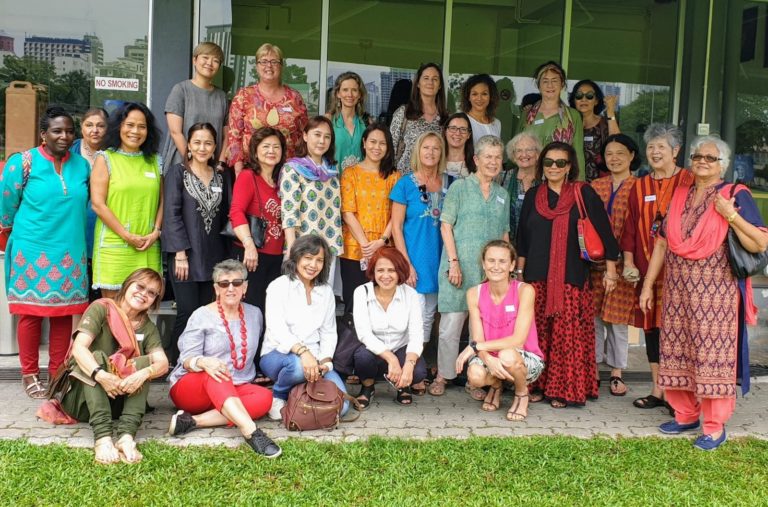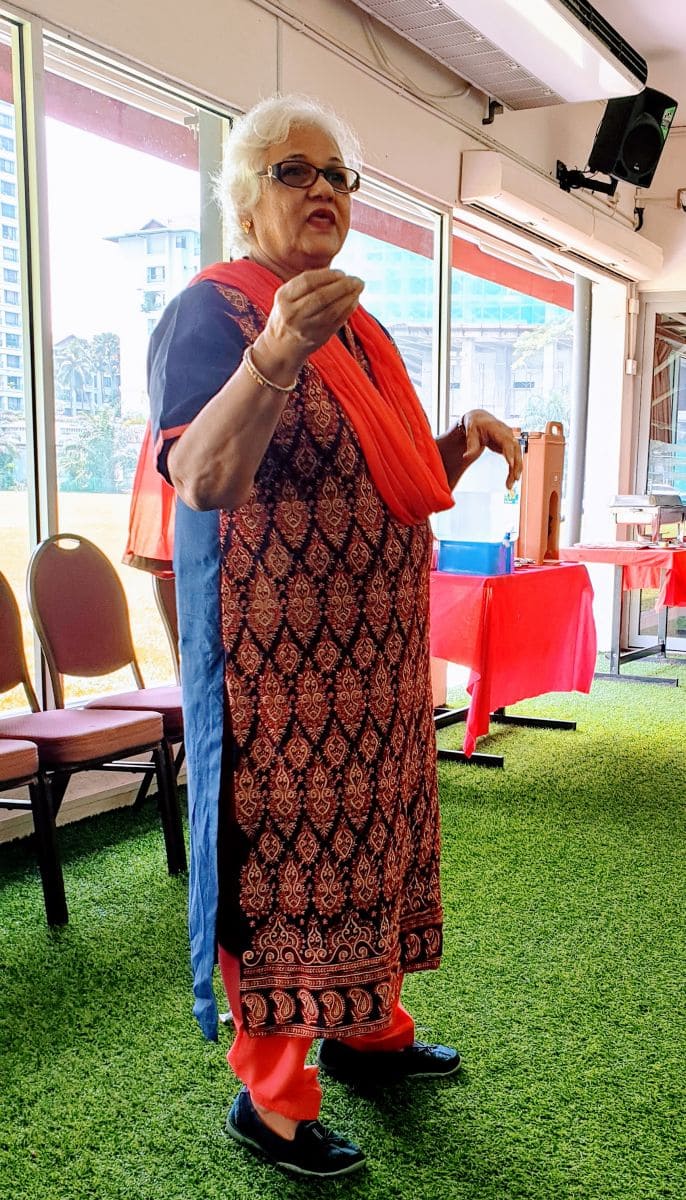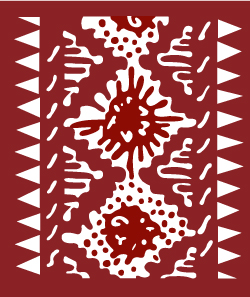ENAK! FLAVOURS OF DIWALI – OCTOBER 10TH, 2019
Hosted by Jagdev Kaur Jasal
The Diwali lunch was held at Club Aman, Kuala Lumpur on October 10th. Twenty-Seven Enakers showed up dressed in vibrant coloured Indian attire and which gave a real ambience of festivity. The organizer of this event, Jagdev Kaur had a very personal story of how she celebrated Diwali as a child and this was accompanied by the foods she grew up eating on most festive days at home in Kuala Kangsar.


Jagdevʼs mother was originally from the village of Hassinga which is in the Fatehabad district of Haryana, a northern Indian state bordering Punjab, Rajasthan, and Uttar Pradesh mainly. The clan her mom came from was very tribal as well as religious. However they were not religious in terms of following the many Hindu rituals very strictly but they believed mainly in feeding everyone on festive occasions. This they believed was their duty to their community and mankind. The village is still a very close knit community so that a guest of a family even today is considered a guest of the entire village.
According to her mother, on the morning of Diwali, everyone dressed in their best finery and would go off to the temple for prayers. On completion of their prayers they would then head for their homes where the rejoicing and feasting would begin. One of the first things they ate was sweet rice (Mithey Chawal) which would be cooked with saffron or yellow colouring which is the colour of festivity in India. The rice is traditionally boiled with saffron, then strained and mixed into sugar syrup laced with the sweet smell of cardamoms, cloves and nuts such as cashew and almond which are added to enrich the rice. Sounds delicious, well it was! They also serve rice pudding (kheer), a halva made with semolina which can optionally be accompanied with puris. For those who wanted savoury food, a curry made from horse gram or chickpeas (Channa) and potatoes would be served as well with the puris or rice. As the villagers were mainly farmers they used grains that were readily available. The Diwali celebration food in Hassinga was strictly vegetarian then and even now.
Once Jagdevʼs mother was married she moved with her husband to the then Malaya (1940s) where they were influenced by the various other religious festivals. They initially followed their Indian tradition, but over time the food became more contemporary and they started serving Jeera rice and vegetable curries, chutneys and salads. They also cooked chicken curry for the people who ate meat and that was the only meat that was cooked those days. The desserts remained the same and they were mainly Jalebis (sweet orange Indian pretzels soaked in sugar syrup), Gulab Jamun (ricotta balls fried and soaked in sugar syrup) and Khowah, Paredy and Barfi (a variety of sweets made from mainly milk and sugar). The Malaysian Open House concept was subsequently adopted and the family started making cookies and cakes which were common among other races as well as the main meal which could be varied from Jeera/ Biryani Rice, Puris and Chapattis.
For us this afternoon, we had a variety of dishes to choose from and the buffet table was set with the starters which were Mithey Chawal (sweet rice) which is eaten with Dahi Palas (fried lentil balls in yogurt), Kheer (rice pudding), Semolina Halwa and Puris. For our main course we had Jeera Rice, Channa and Potato Curry, Chicken Curry, Mint and Brinjal/ Aubergine Chutney and a Salad. For dessert we had Gulab Jamun and Jalebis.
Jagdev encouraged us to start with the sweet starters first, as usually eaten the traditional way and then to go on with the main savoury food and finally eat the desserts and wash it all down with Masala Tea.
Nisha Dobberstein also added a couple of ways that Diwali is celebrated in her community. Interesting indeed.
Must say it was a wonderful lunch and made even more special as it was also Jagdevʼs birthday.
Venue: Green Terrace, Aman Club/ Kelab Aman, Lorong Damai 6, Kampung Datuk Keramat, 55000 Kuala Lumpur
